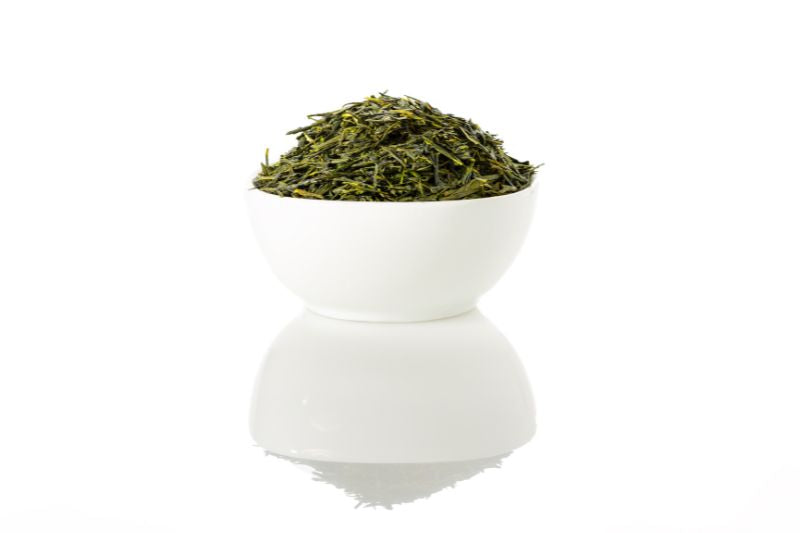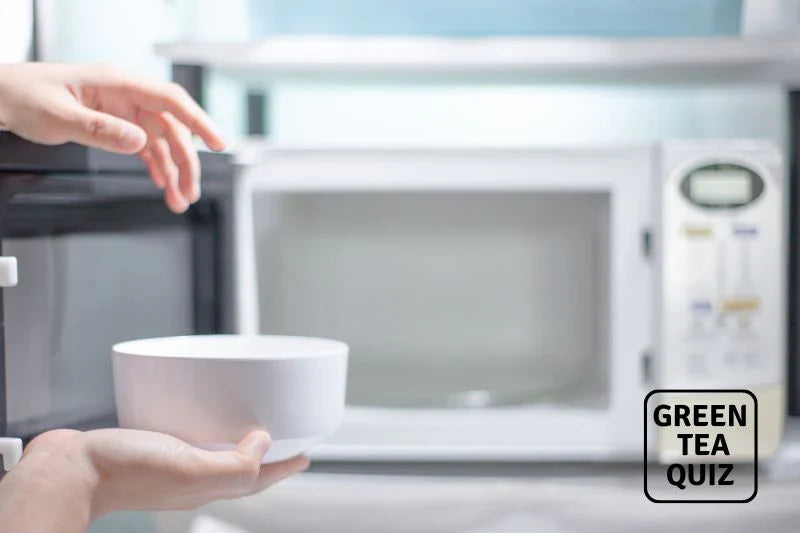This article was posted back in 2021, but since it was so popular, we made videos out of it. Watch the video and enjoy the original article below!
We all know the extensive list of ways green tea benefits our health. Well, it is not just great for us – leaves of this heavenly tea can also be a wonderfully healthy addition to the soil in your garden to helps it bloom.
Adding Green Tea Leaves To Your Garden
First and for most, while it is said that there are 17 elements in the soil that are considered to be crucial for plant growth, it is said that Nitrogen(N), Phosphorous(P), and Potassium(K) are the most important for plant growth. These three nutrients are known to be primary macronutrients since plants take these three elements most from the soil. Now, let`s take look into what green tea can do!
Maybe you saw this coming, but yes, green tea is high in all three of these macronutrients! Nitrogen is vital for plants to survive since it is the major component of chlorophyll, the compound that enables plants to use energy from the sun to produce sugars from water and carbon dioxide (photosynthesis).
Additionally, green tea leaves contain various micronutrients and antioxidants that further contribute to soil health and plant vitality. These include trace amounts of calcium, magnesium, and iron, which support cell wall strength, enzyme function, and chlorophyll production, respectively. The organic compounds in the leaves also help improve soil microbial activity, fostering beneficial bacteria and fungi that aid nutrient absorption and protect plants from harmful pathogens. By enriching the soil with both macronutrients and these supportive elements, green tea leaves create a balanced environment that promotes robust, resilient plant growth.
How Tea Leaves Can Further Enrich Your Garden Soil
When you add green tea leaves to your garden, they not only give your plants a nutrition boost, but the leaves also become food for earthworms, known to be beneficial residents of the soil as they play a vital part in improving and maintaining soil structure. When these creatures eat, they break down and recycle their food within the soil, which naturally fertilizes the earth and packs it with nutrients. Not only this, but earthworms also improve the soil`s structure by leaving passages for sunlight as well as space for water to be drained and absorbed from the surface to be stored in the soil. They also leave their castings, which are also rich in nutrients for the soil.
Research has even shown that soils without earthworms can be 90% less effective at soaking up water. Yes, on top of the nutritional boost, we are saying that green tea leaves can also be food for these amazing creatures for your soil!
Moreover, as green tea leaves decompose, they release organic matter that enhances the soil’s texture and water retention capacity. This organic matter improves aeration and creates a sponge-like effect in the soil, helping it hold moisture longer while preventing waterlogging. This is especially beneficial during dry spells, as it allows plants to access water more consistently. The gradual breakdown of tea leaves also encourages the growth of beneficial microbes, which play a crucial role in nutrient cycling and disease suppression. Together, these effects create a healthier, more fertile soil ecosystem that supports vigorous plant growth and sustainability in your garden.
However, there is more - green tea leaves themselves can also act as a natural fertilizer or manure! These garden benefits can be achieved directly in a few simple ways:
- Wash the used tea leaves and let them dry under the sun
- Scatter a thin layer of green tea leaves around the bases of your plants, focusing primarily on acid-friendly plants such as roses, tomatoes, or blueberries.
- Most garden plants thrive in slightly acidic soil to neutral soil, typically at a pH between 6 and 7. Green tea leaves contribute to maintaining this soil environment by lowering the soil`s pH and increasing its acidity. However, not everything can grow in acidic soil, so make sure to use the leaves sparingly so that only minimum acidity is added to keep the soil in balance for all kinds of plants to be benefitted.
- Place a decent amount of green tea leaves directly on top of the soil, then gently mix into.
- Place your biodegradable tea bag right under the soil.

Why is it Better to Make Compost With Green Tea Leaves?
Using green tea leaves as compost can add nutrients to the soil, as well as balance the amount of nitrogen and carbon in the decaying leaves that fall from the plant.
With better compost, plants will become healthier and chemical-free; and you know what? You will also be reducing waste by using these leaves as you gardening assistant!
Additionally, as already mentioned, since the compost and soil will be more nutritious as a result, the earthworms will now have a better meal enriching the soil even more as a result.
Composting green tea leaves also helps accelerate the natural breakdown process of organic materials, turning kitchen and garden waste into valuable fertilizer more quickly. The balanced nitrogen-to-carbon ratio in green tea leaves ensures that the compost pile heats up efficiently, promoting the activity of beneficial microbes that decompose matter into nutrient-rich humus.
This humus improves soil fertility, water retention, and structure, creating an ideal environment for plant roots to thrive. Moreover, by composting these leaves rather than disposing of them, you contribute to reducing landfill waste and lowering your environmental footprint, making your gardening efforts not only productive but eco-friendly as well.
Making Stronger Compost With Used Green Tea Leaves
You can make compost out of your used green tea leaves by soaking them in a jar, which helps to reduce the caffeine content.
Then pour the compost liquid directly into the soil and roots. Soaking used green tea leaves in water creates a nutrient-packed compost tea that’s easy for plants to absorb. This liquid fertilizer contains dissolved macronutrients and beneficial organic compounds that quickly nourish the soil and roots, giving plants an immediate growth boost.
Additionally, soaking reduces caffeine levels, which in high amounts can be harmful to some plants, ensuring the compost tea remains gentle yet effective. Regular application of this compost liquid not only improves soil fertility but also encourages healthy microbial activity, enhancing nutrient uptake and helping plants better resist diseases and environmental stresses.
How Caffeine Can Assist Your Gardening
Caffeine is a stimulant and an effective energy boost. A small amount of caffeine can help humans and plants feel lively, and stimulate plant growth. Green tea has less caffeine content than coffee, but even more so is when they are brewed and washed - the caffeine further decreases in the tea; hence, it is safe t ouse green tea leaves on soil and plants. Be careful though - using too much of it can cause the plant to weaken and even wither.
Scattering the green tea leaves around the roots will allow your plants to absorb the moisture from the tea leaves, and help keep the soil damp enough. This means that you can water your plants less often, which helps you save time, while your plants are also happy and hydrated!
To improve germination, soak the seeds in the used green tea leaves concoction for 8-12 hours before planting them. The antioxidants in green tea kill the bacteria living in those seeds. Since green tea leaves have remaining antioxidants, these can reduce plant stress. As a result, this will make the plant stronger, allowing them to cope with stressful weather situations like drought, for instance.
The green tea leaves concoction can boost flowering as well, since its rich nutrition content can enhance the size and vibrant color of the flowers.
Green Tea as a Natural Repellent
Ward off annoying fungi, spiders, and insects by burying used tea leaves near your plants, scattering your leaves around the roots, or spraying soaked tea leaves on the plant!
Additionally, green tea can also ward off weeds by being used as mulch, as well as keeping your feline friends away with its smell that cats dislike!
This thing called green tea really is full of good news!
Conclusion
So yes, absolutely! You can throw those used tea leaves to your garden. The key to make sure not right after brewing your tea, but soak it for a while first to make some compost liquid. Another important note to keep in mind is to be careful not to use them excessively. Using it in excess may lead to too much increase in soil acidity, which will negatively impact your plants since what they require is slightly acidic to neutral soil.
Another Bonus!
Believe it or not, Japanese green tea can also be used in your bathtub!
Green tea leaves or green tea bags help the skin to be smoother, as well as relieving muscle pain. Most of all, they feel soothing and relaxing – treat yourself with green tea bath time once in a while!
Get Free Bonus Books

Sign up for free to the Green Tea Club to get advice and exclusive articles about how to choose Japanese Tea, and tips, tricks, and recipes for enjoying Japanese tea.
About the author
Kei Nishida
Author, CEO Dream of Japan
Certification: PMP, BS in Computer Science
Education: Western Washington University
Kei Nishida is a passionate Japanese green tea connoisseur, writer, and the founder and CEO of Japanese Green Tea Co., a Dream of Japan Company.
Driven by a deep desire to share the rich flavors of his homeland, he established the only company that sources premium tea grown in nutrient-rich sugarcane soil—earning multiple Global Tea Champion awards.
Expanding his mission of introducing Japan’s finest to the world, Kei pioneered the launch of the first-ever Sumiyaki charcoal-roasted coffee through Japanese Coffee Co. He also brought the artistry of traditional Japanese craftsmanship to the global market by making katana-style handmade knives—crafted by a renowned katana maker—available outside Japan for the first time through Japanese Knife Co.
Kei’s journey continues as he uncovers and shares Japan’s hidden treasures with the world.
Learn more about Kei








I found your article amazingly informative thank you